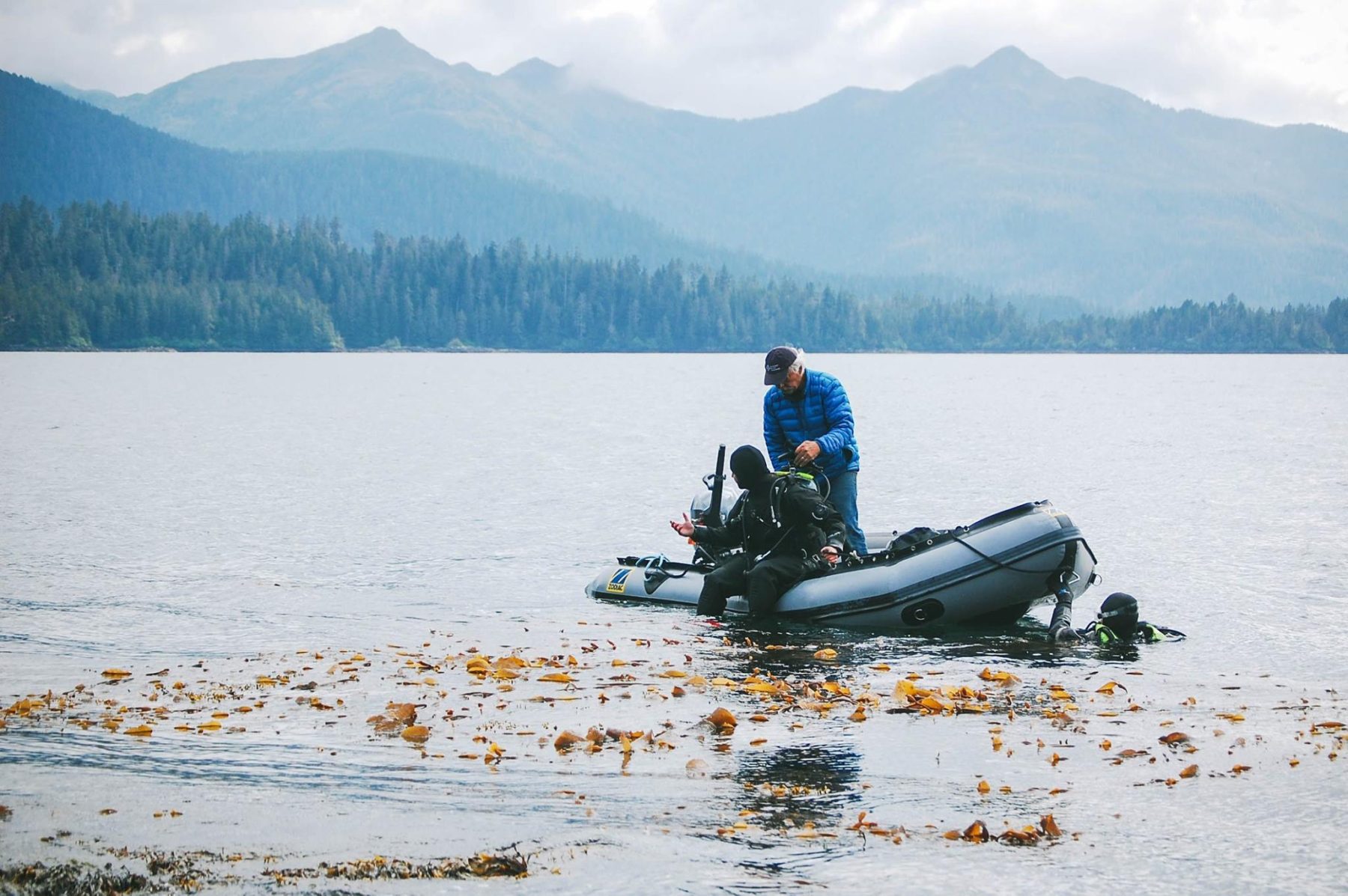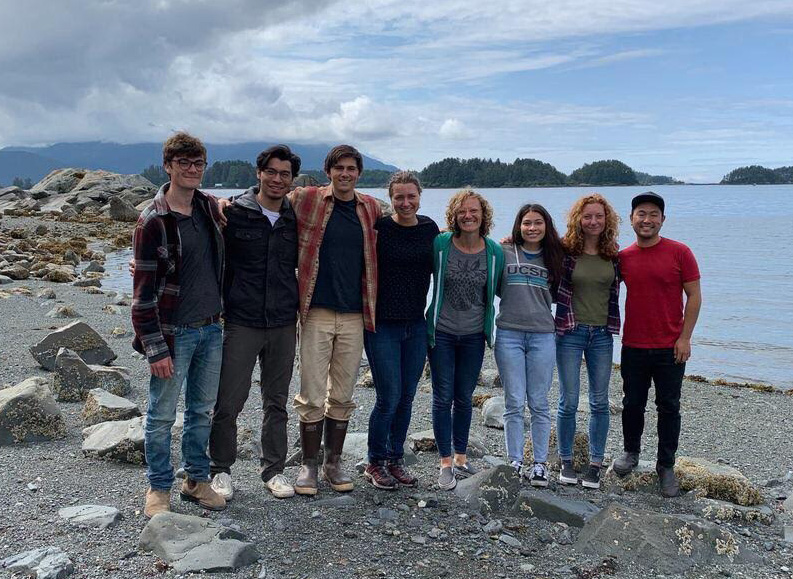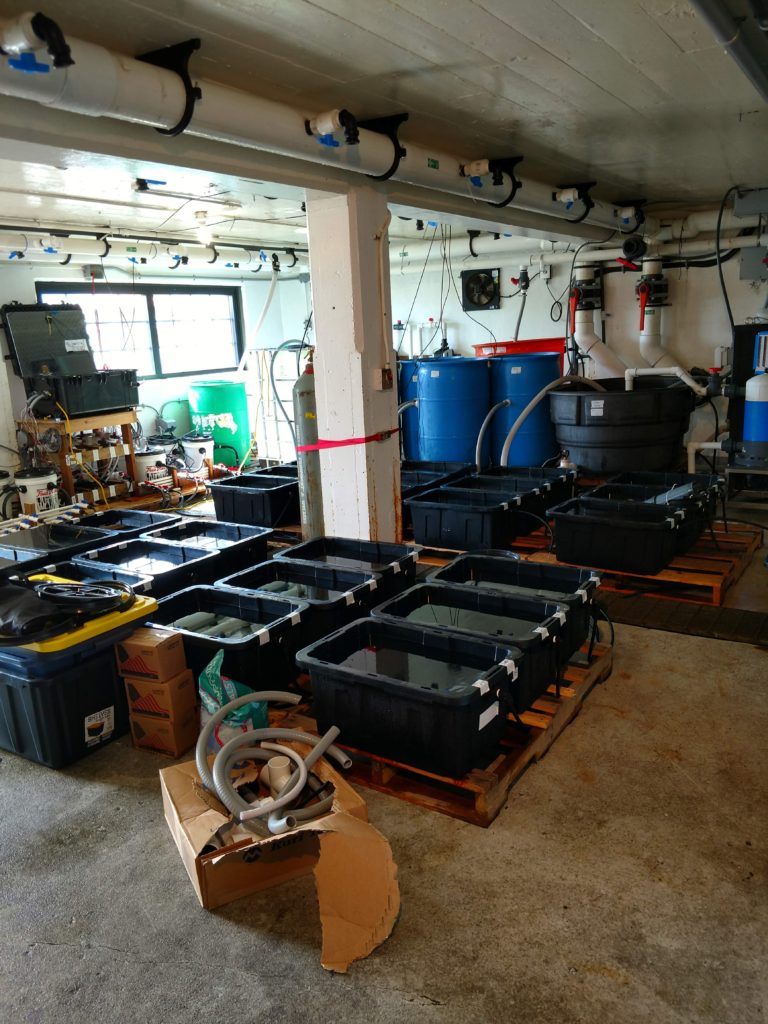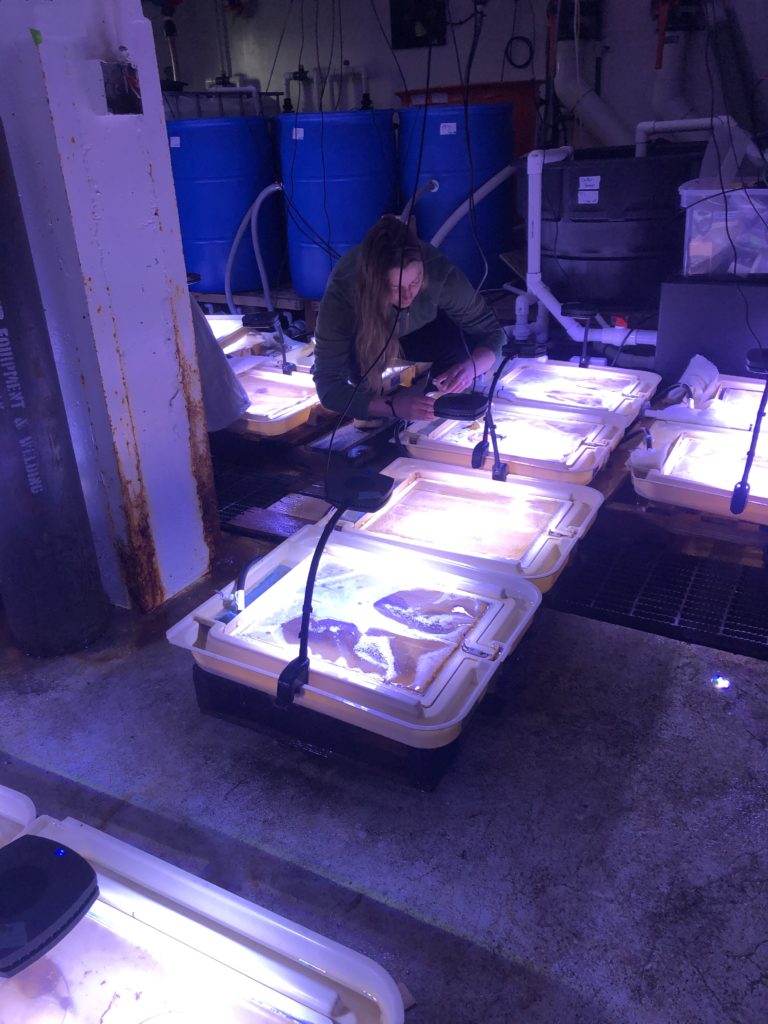
Many native west coast species reach the northern limit of their range in Southeast Alaska. Making Sitka a unique and biologically productive area to study. It’s with that spirit that brings researchers from Dr. Kristy Kroeker’ s Lab out of the University of California Santa Cruz to Sitka. Researchers from that group are examining the effects of ocean acidification in Sitka Sound through a multi-year project.
Dr. Kroeker and her students are using a lab housed in the Science Center hatchery where they can manipulate oceanic conditions in small tanks to simulate stressors on organisms related to climate change, primarily ocean acidification and temperature. Researchers can change the pH and temperature in each of the 24 tanks to monitor how herring eggs, kelp, abalone, sea urchins, and other species are responding to environmental changes. In addition to lab experiments, the Kroeker team spends time diving on kelp forests throughout Sitka Sound as they conduct subtidal surveys to monitor current conditions of kelp forests.
We don’t just provide visiting researchers with a place to house their top-notch projects, we also provide specific science communication training, technical support, and expertise on engaging locals with their work—whether it was a beer at the pub or a Science in the Schools lesson—the Science Center guides researchers outreach journeys.



To learn more about the Kroeker Lab’s research in Sitka Sound visit their website here! You can also follow PhD student and friend of the Science Center Lauren Bell studies at lobell_ak on Facebook or Instagram.